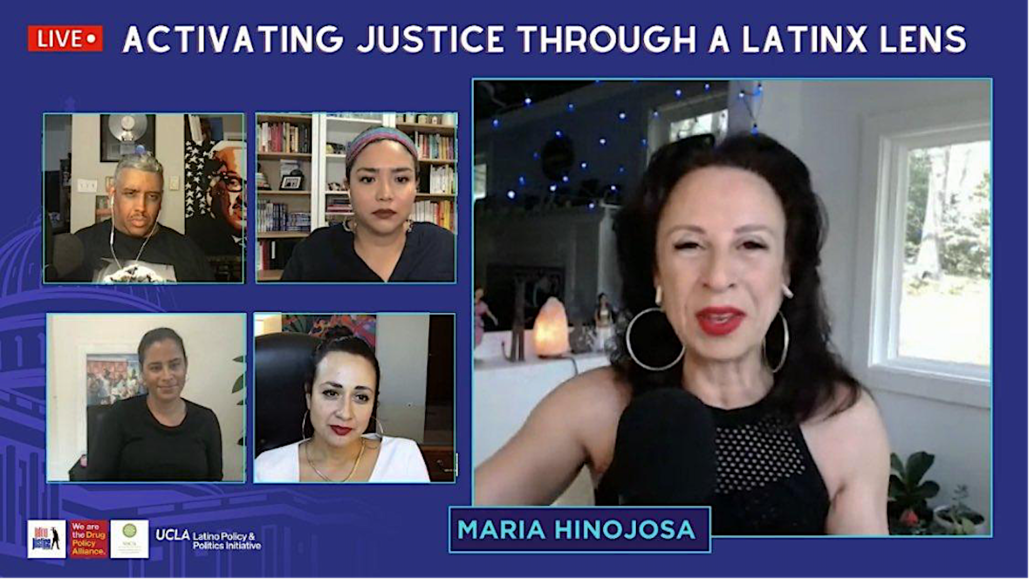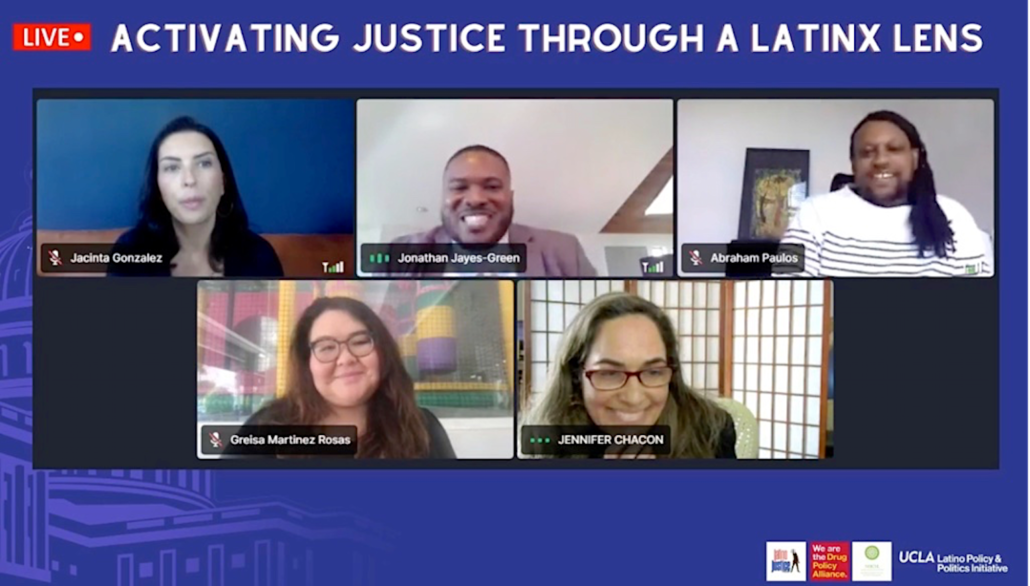Activating Justice Through a 21st Century Latinx Lens UCLA co-hosts a dialogue featuring leading Latinx voices with the goal of sparking a full transformation of the criminal legal system
By Kacey Bonner
What would our criminal legal system look like if it was truly designed to reduce harm, advance public safety and end America’s legacy as the world’s leading incarcerator?
That was the question on everyone’s mind as leading Latinx elected officials, advocates, academics and media personalities convened to grapple with the issue of criminal justice — a topic of intense national debate.
Hosted by the UCLA Latino Policy and Politics Initiative (LPPI), LatinoJustice PRLDEF, the Drug Policy Alliance and the National Hispanic Caucus of State Legislators, the May 13-14 convening “Advancing Criminal Justice Reform Through a 21st Century Latinx Lens” had several goals: creating greater visibility of Latinos within the justice reform movement; identifying opportunities to build solidarity with other communities most impacted by the criminal legal system; and advancing transformative policy focused on justice rather than punishment.
“For too long, Latinos have been left out of the criminal justice conversation, even though we are the second most negatively impacted group by numbers behind Black people when it comes to our criminal legal systems,” said Sonja Diaz, founding director of the Latino Policy and Politics Initiative.
With conversations led by faculty experts such as UCLA Law Professor Jennifer Chacón, over 1,000 participants tuned in to hear from a multiracial cadre of 40 speakers covering topics including ending youth incarceration, defunding the police, and the intersection of the criminal legal and immigration systems – all through a Latinx lens.
Speakers including journalist Maria Hinojosa and author Julissa Arce led lively discussions about the opportunity to create more truthful and inclusive narratives in the criminal justice space and develop tailored solutions that address the underlying structural and systemic deficiencies that drive people to engage in harmful acts.
“It was so exciting to see this come together with so many brilliant people who were able to bring fresh perspective on the issue, the challenges and opportunities before us and how we can work in solidarity across race and experience to achieve common goals that make our communities safer and healthier,” said LPPI fellow Paula Nazario, one of the lead organizers of the convening. A UCLA graduate, Nazario is now pursuing her master of public policy at UCLA Luskin.
The event’s opening plenary session included Kelly Lytle-Hernández, a professor of history, African American studies and urban planning at UCLA. Lytle-Hernández gave attendees key insight into the impacts of the criminal legal system on Latinos, the structural racism propping up the system of incarceration and how the criminalization of immigrants is working to expand systems of mass incarceration.
Breakout sessions then enabled attendees to think about how they can demand better data that creates a clearer picture of the challenges and opportunities ahead and how Latino-facing organizations — both within and outside the justice reform space — can work together to create broad change.
Throughout the convening, conversation returned to the immense data and knowledge gap that obscures the true impact of the criminal legal system on Latinx individuals, families and communities. If this gap persists, there is a risk of creating solutions that fail to address challenges unique to Latinos who are systems-impacted and perpetuating inequities that exist in our current criminal legal system.
A conversation with Juan Cartagena, president and general counsel of Latino Justice PRLDEF, closed the two-day meeting. Cartagena said that, while the U.S. criminal legal system hasn’t changed much in the past five decades, it is on the precipice of big change — change made possible by communities that see an unprecedented opportunity to fundamentally transform systems of justice.
“We cannot lose sight of the fact that there have been amazing opportunities for organizing people around truth, and for having that truth talk to power,” Cartagena said.
“I think we’re stronger than ever to actually have conversations about dismantling systems, about what it means to invest in our communities in different ways and to think outside of every box at every corner so we can get things done.”

Latino USA’s Maria Hinojosa moderates the opening plenary session with podcast host David Luis “Suave” Gonzalez, author Julissa Arce, District Court Judge Natalia Cornelio and UCLA Professor Kelly Lytle-Hernández.

Jonathan Jayes-Greene of the Marguerite Casey Foundation moderates a “crimmigration” panel featuring Jacinta Gonzalez of Mijente, Abraham Paulos of Black Alliance for Just Immigration, UCLA Professor Jennifer M. Chacón and Greisa Martinez Rosas of United We Dream.
